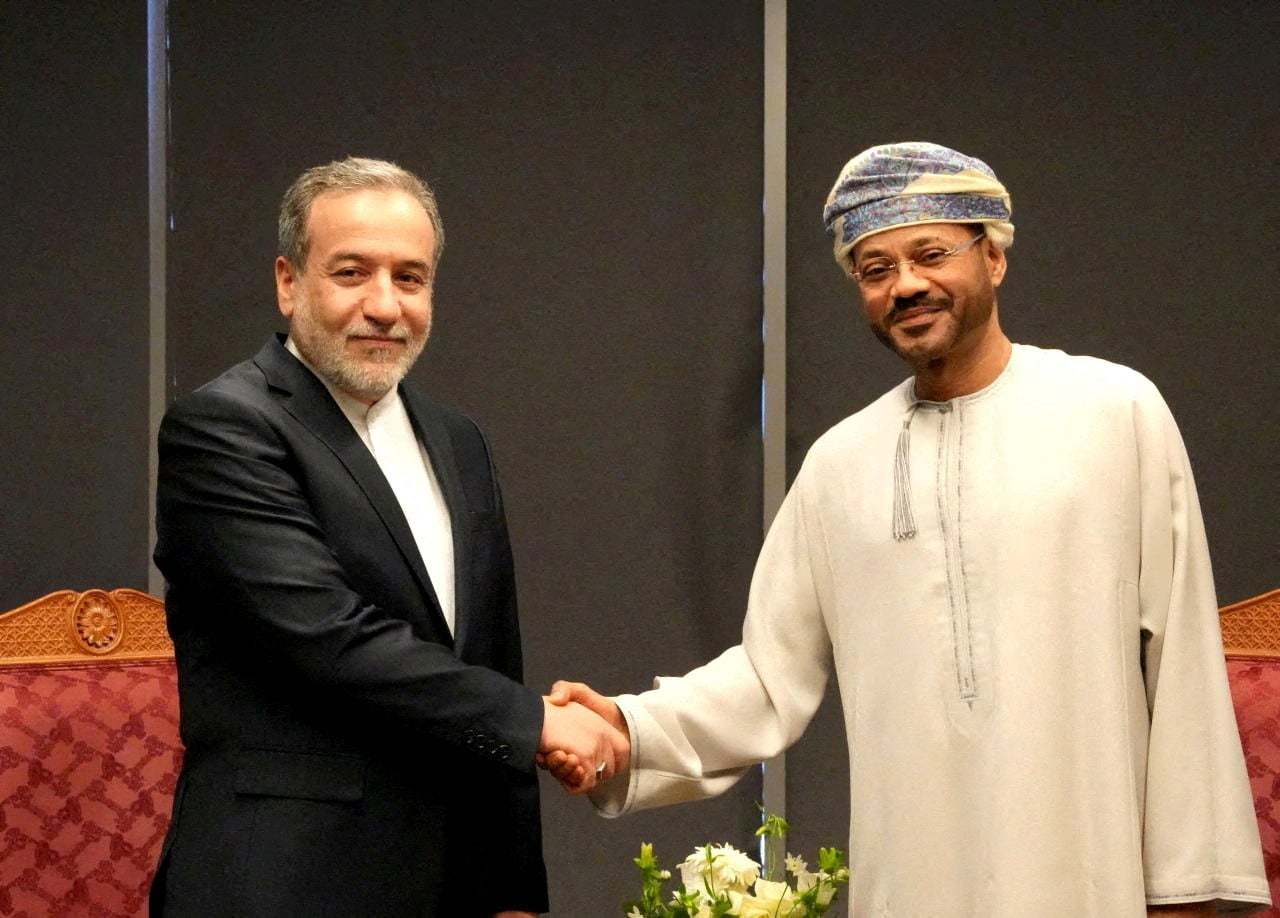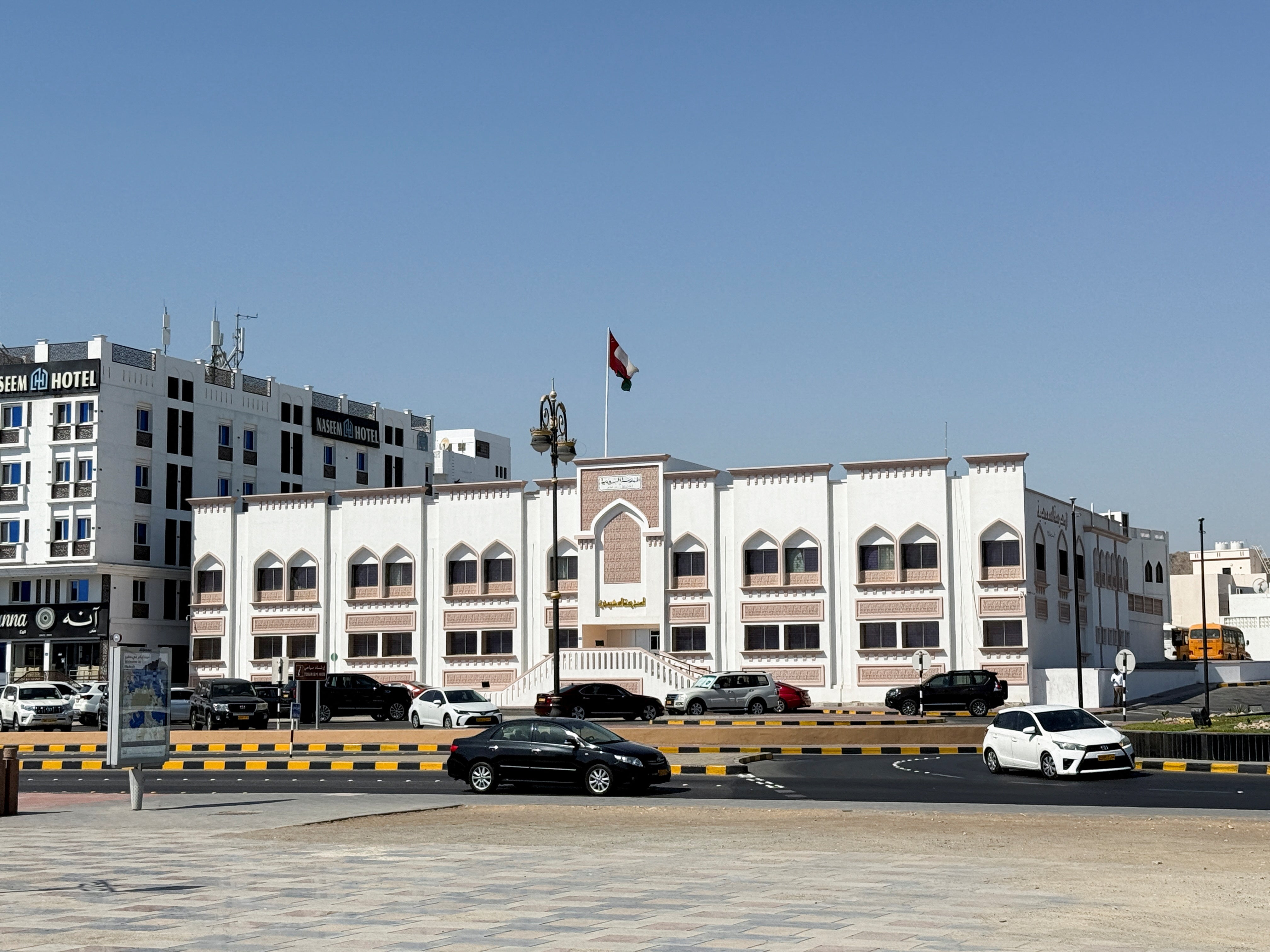Iran and the US said that they held "positive" and "constructive" talks over Tehran’s nuclear programme as the Donald Trump administration rushed to make a new deal.
Iranian and American officials met in Oman on Saturday and agreed to reconvene next week to continue the talks, days after Mr Trump threatened military action if there was no deal on Tehran’s nuclear programme.
The US president’s Middle East envoy Steve Witkoff and Iranian foreign minister Abbas Araghchi "briefly spoke" together, according to Iran's state broadcaster.
Mr Araghchi described the meeting as constructive to state TV, adding that four rounds of messages were exchanged during the indirect portion.
"Both sides, including the Americans, have said that their goal is also to reach an agreement in the shortest possible time,” he said. “However, that will certainly not be an easy task.”
He sought to downplay the encounter as "a brief initial conversation, greetings and polite exchanges", likely to avoid drawing the anger of hardliners in Iran.

Mr Trump told reporters on Air Force One on Saturday the talks were "going OK". "I can't tell you because nothing matters until you get it done, so I don't like talking about it,” he said. “The Iran situation is going pretty good, I think.”
He had made a surprise announcement last week that Washington and Tehran would begin talks in Oman, a Gulf state that previously mediated between the West and the Islamic Republic.
The West had until October this year to trigger a “snapback” of UN sanctions on Iran for violating its terms.
The president this year publicly declared his goal of reaching a new agreement with Tehran that would lead to the shutdown of Iran’s nuclear weapons programme.
Mr Trump faced criticism for withdrawing from the Joint Comprehensive Plan of Action, or the Iran nuclear deal, during his first presidency in 2018.
Iran insists its nuclear programme is “entirely peaceful” despite some of its officials increasingly threatening to pursue a bomb after the conflict with Israel escalated last year.
The White House described the discussions in Oman as "very positive and constructive" while conceding the issues that needed to be resolved were "very complicated".
"Special envoy Witkoff's direct communication today was a step forward in achieving a mutually beneficial outcome," the White House said.

Saturday's exchanges were indirect and mediated by Oman, as Iran had wanted, rather than face-to-face, as Mr Trump had demanded. Each delegation had its separate room and exchanged messages via Oman's foreign minister.
Iran previously rejected direct talks with Washington after Mr Trump in a letter to Iran's supreme leader Ali Khamenei warned that "there are two ways Iran can be handled: militarily, or you make a deal".
Iran said it would not bow to American "orders to talk".
Since then, Mr Trump has repeatedly threatened to launch strikes on Iran's nuclear programme if a deal is not reached.
Omani foreign minister Badr al-Busaidi, who shuttled between the two sides, said Iran and the US had a "shared aim of concluding a fair and binding agreement”.
"I would like to thank my two colleagues for this engagement, which took place in a friendly atmosphere conducive to bridging viewpoints and ultimately achieving regional and global peace, security and stability," he wrote on X. "We will continue to work together and put further efforts to assist in arriving at this goal."
The next round of talks is set to take place on 19 April.
Ukraine war latest: Trump ‘demands control’ of Ukraine pipeline carrying Russian gas
Trump makes major China tariffs concession as US-UK trade deal ‘days away’: Live
Mea Culpa: Un-separating and substituting
Israeli airstrike on Gaza apartment block kills at least 23 Palestinians
The Taliban say case of detained British couple will be decided under Islamic law
Family mourns after Israel’s ‘execution’ of US teen Amer Rabee in West Bank







